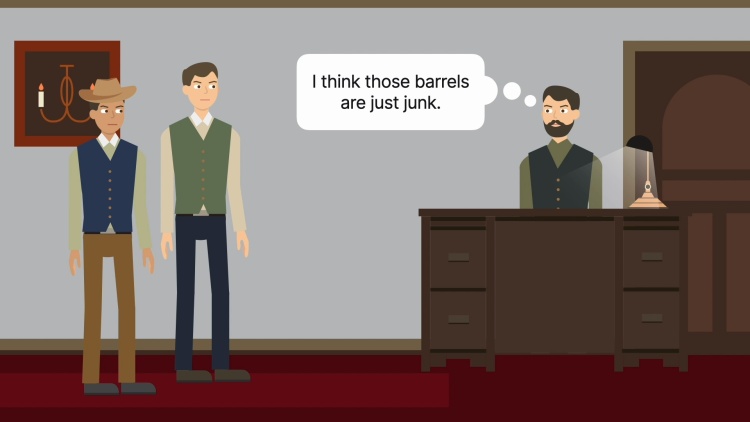Poggi v. Scott
California Supreme Court
139 P. 815 (1914)
- Written by Megan Petersen, JD
Facts
Filippo Poggi (plaintiff) owned approximately 200 barrels of wine that he kept in a basement cellar. Poggi originally leased the whole building from Judge Mouser, but later Judge Mouser leased the whole building to the Sanitary Laundry Company, and Poggi subleased the basement from the company. Judge Mouser then sold the building that contained the cellar to C. A. Scott (defendant), telling Scott about Poggi’s lease with the Sanitary Laundry Company. Poggi was unaware of the change in ownership. After taking possession of the building, Scott was contacted by two men who said they wished to purchase some empty wine barrels stored in the building’s cellar. Scott, believing the men’s assertions that the barrels were empty, sold the barrels to the men for $15. The men, however, knew the barrels were full of wine and valuable. They removed approximately 200 barrels from the cellar and stole the wine. The two men were arrested for theft, and Poggi brought a civil action for conversion against Scott, seeking $2,000 in damages. Scott argued that he could not be liable for conversion because he was unaware the barrels contained wine and merely believed he was getting rid of unwanted junk. The trial court granted a nonsuit on the ground that Poggi failed to present a sufficient case of conversion to warrant jury consideration. Poggi appealed.
Rule of Law
Issue
Holding and Reasoning (Henshaw, J.)
What to do next…
Here's why 899,000 law students have relied on our case briefs:
- Written by law professors and practitioners, not other law students. 47,000 briefs, keyed to 994 casebooks. Top-notch customer support.
- The right amount of information, includes the facts, issues, rule of law, holding and reasoning, and any concurrences and dissents.
- Access in your classes, works on your mobile and tablet. Massive library of related video lessons and high quality multiple-choice questions.
- Easy to use, uniform format for every case brief. Written in plain English, not in legalese. Our briefs summarize and simplify; they don’t just repeat the court’s language.







